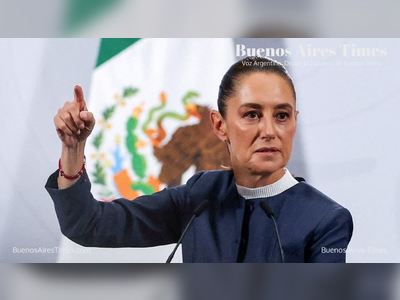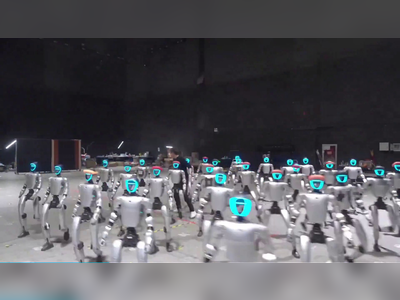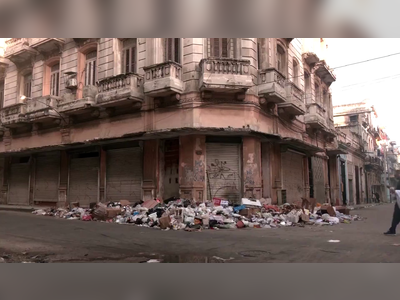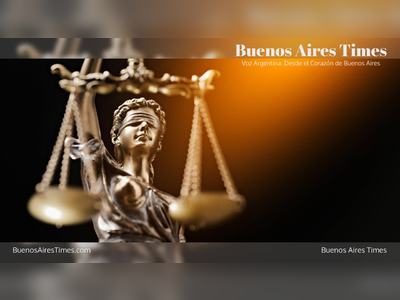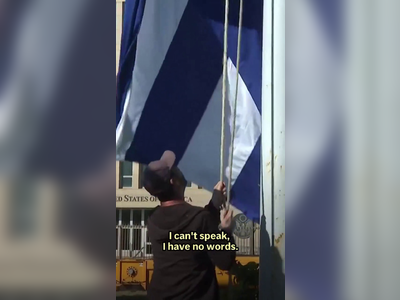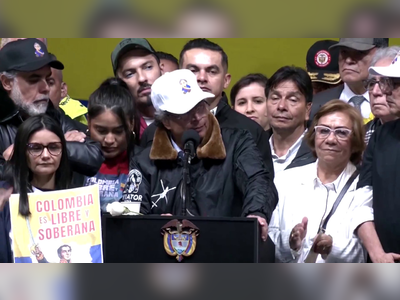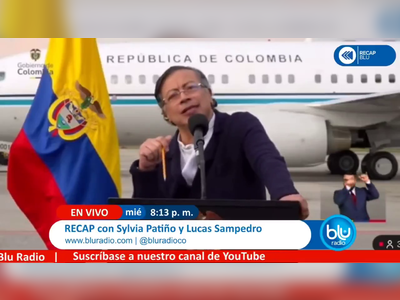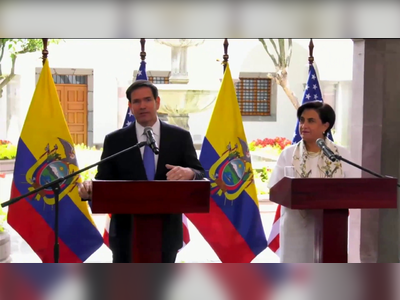
Intense Tension in Seoul: Deposed South Korean Leader Detained Following Confrontation
The declaration of military rule by former President Yoon Suk-yeol, followed by his impeachment and arrest, is causing political turmoil in South Korea.
In a surprising twist, South Korean officials have detained former President Yoon Suk-yeol after a tense standoff at his home in Seoul.
Yoon’s contentious announcement of martial law and his subsequent impeachment by the legislature culminated in a dramatic police operation involving more than 1,000 officers.
The arrest has sparked widespread discussion about political responsibility, constitutional law, and the fragility of democracy in South Korea.
Martial Law and Impeachment: The Lead-Up
Once a prominent figure in South Korean politics, Yoon Suk-yeol stunned the nation in December by imposing martial law.
Justifying it as a necessary measure to safeguard national security, Yoon accused opposition parties of subverting democracy.
However, the declaration was immediately condemned by legislators and civil society groups, who perceived it as an authoritarian overreach.
Within hours, parliament convened an emergency session and unanimously voted to overturn the martial law order.
Under significant political pressure, Yoon revoked the declaration but refused to resign.
By early January, parliament formally impeached him, beginning a prolonged standoff.
A Dramatic Operation: The Arrest
After weeks of unsuccessful attempts to enforce an arrest warrant, authorities intensified efforts on January 14. Police and anti-corruption agents surrounded Yoon’s residence, facing resistance from his presidential security team and loyalists, including 30 ruling party lawmakers who physically blocked access.
To surmount the obstacles, police used ladders to scale buses and barricades strategically placed around the residence.
Inside, Yoon eventually consented, stating, 'I will submit to questioning to prevent bloodshed,' while asserting the arrest was illegitimate.
Shortly after, his motorcade was seen heading to the investigation headquarters.
Polarized Opinions: Public Reaction
The arrest has further deepened divisions in South Korea’s already polarized political environment.
Yoon’s supporters gathered outside his home, chanting and condemning the impeachment as politically motivated.
Clashes broke out between Yoon’s supporters and opponents, prompting police to intervene and disperse the crowds.
Opposition leaders hailed the arrest as a move toward restoring constitutional order.
Park Chan-dae, leader of the Democratic Party, declared, 'This is the first step toward reestablishing democracy and the rule of law in South Korea.'
Political Stability and Interim Leadership
In the wake of Yoon’s impeachment, interim President Choi Sang-mok has worked to stabilize the nation amid rising tensions.
In a televised address, Choi urged restraint and cautioned against physical confrontations between state agencies and political groups.
'We must prioritize national unity and avoid further escalation,' he stressed.
Choi’s leadership has received cautious support from opposition parties, but the challenges of navigating a deeply divided political landscape are significant.
Observers note that the interim government’s handling of the aftermath of Yoon’s arrest will be crucial for maintaining South Korea’s democratic stability.
Broader Implications and Historical Context
Yoon’s martial law declaration represents a rare and contentious period in South Korea’s modern history.
The country, which transitioned to democracy in the late 20th century after decades of authoritarian rule, has faced periodic crises testing its institutional resilience.
Analysts suggest Yoon’s actions highlight deeper political and social divisions, worsened by economic challenges and shifting regional dynamics.
As the legal proceedings against Yoon unfold, South Korea’s commitment to democratic principles will likely come under scrutiny.
The former president has vowed to contest the charges, portraying himself as defending the nation against 'forces undermining its sovereignty.' His supporters echo this, arguing his impeachment and arrest were driven by partisan motives rather than legal grounds.
International Reactions
Yoon’s arrest has attracted international attention, with foreign governments and organizations closely monitoring the developments.
The U.S. State Department, while not commenting on the specifics of the case, reaffirmed its support for South Korea’s democratic processes.
Regional neighbors like Japan and China have also expressed interest due to South Korea’s strategic importance in East Asia.
Events in Seoul have prompted discussions on the role of executive power and accountability mechanisms in democracies worldwide.
Comparisons to political crises in other countries highlight both the unique and universal aspects of South Korea’s current situation.
Moving Forward
As Yoon Suk-yeol prepares for questioning, South Korea stands at a pivotal juncture.
The outcome of this high-profile case will likely shape the nation’s political trajectory for years, influencing public trust in institutions and setting precedents for future leadership transitions.
Yoon’s contentious announcement of martial law and his subsequent impeachment by the legislature culminated in a dramatic police operation involving more than 1,000 officers.
The arrest has sparked widespread discussion about political responsibility, constitutional law, and the fragility of democracy in South Korea.
Martial Law and Impeachment: The Lead-Up
Once a prominent figure in South Korean politics, Yoon Suk-yeol stunned the nation in December by imposing martial law.
Justifying it as a necessary measure to safeguard national security, Yoon accused opposition parties of subverting democracy.
However, the declaration was immediately condemned by legislators and civil society groups, who perceived it as an authoritarian overreach.
Within hours, parliament convened an emergency session and unanimously voted to overturn the martial law order.
Under significant political pressure, Yoon revoked the declaration but refused to resign.
By early January, parliament formally impeached him, beginning a prolonged standoff.
A Dramatic Operation: The Arrest
After weeks of unsuccessful attempts to enforce an arrest warrant, authorities intensified efforts on January 14. Police and anti-corruption agents surrounded Yoon’s residence, facing resistance from his presidential security team and loyalists, including 30 ruling party lawmakers who physically blocked access.
To surmount the obstacles, police used ladders to scale buses and barricades strategically placed around the residence.
Inside, Yoon eventually consented, stating, 'I will submit to questioning to prevent bloodshed,' while asserting the arrest was illegitimate.
Shortly after, his motorcade was seen heading to the investigation headquarters.
Polarized Opinions: Public Reaction
The arrest has further deepened divisions in South Korea’s already polarized political environment.
Yoon’s supporters gathered outside his home, chanting and condemning the impeachment as politically motivated.
Clashes broke out between Yoon’s supporters and opponents, prompting police to intervene and disperse the crowds.
Opposition leaders hailed the arrest as a move toward restoring constitutional order.
Park Chan-dae, leader of the Democratic Party, declared, 'This is the first step toward reestablishing democracy and the rule of law in South Korea.'
Political Stability and Interim Leadership
In the wake of Yoon’s impeachment, interim President Choi Sang-mok has worked to stabilize the nation amid rising tensions.
In a televised address, Choi urged restraint and cautioned against physical confrontations between state agencies and political groups.
'We must prioritize national unity and avoid further escalation,' he stressed.
Choi’s leadership has received cautious support from opposition parties, but the challenges of navigating a deeply divided political landscape are significant.
Observers note that the interim government’s handling of the aftermath of Yoon’s arrest will be crucial for maintaining South Korea’s democratic stability.
Broader Implications and Historical Context
Yoon’s martial law declaration represents a rare and contentious period in South Korea’s modern history.
The country, which transitioned to democracy in the late 20th century after decades of authoritarian rule, has faced periodic crises testing its institutional resilience.
Analysts suggest Yoon’s actions highlight deeper political and social divisions, worsened by economic challenges and shifting regional dynamics.
As the legal proceedings against Yoon unfold, South Korea’s commitment to democratic principles will likely come under scrutiny.
The former president has vowed to contest the charges, portraying himself as defending the nation against 'forces undermining its sovereignty.' His supporters echo this, arguing his impeachment and arrest were driven by partisan motives rather than legal grounds.
International Reactions
Yoon’s arrest has attracted international attention, with foreign governments and organizations closely monitoring the developments.
The U.S. State Department, while not commenting on the specifics of the case, reaffirmed its support for South Korea’s democratic processes.
Regional neighbors like Japan and China have also expressed interest due to South Korea’s strategic importance in East Asia.
Events in Seoul have prompted discussions on the role of executive power and accountability mechanisms in democracies worldwide.
Comparisons to political crises in other countries highlight both the unique and universal aspects of South Korea’s current situation.
Moving Forward
As Yoon Suk-yeol prepares for questioning, South Korea stands at a pivotal juncture.
The outcome of this high-profile case will likely shape the nation’s political trajectory for years, influencing public trust in institutions and setting precedents for future leadership transitions.
